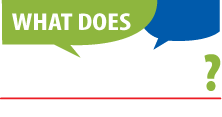Phrases starting with the letter: A B C D E F G H I J K L M N O P Q R S T U V W X Y Z
Definition of: have
(hav) v.t.
Present indicative: I, you, we, they have (Archaic thou hast), he, she, it has (Archaic hath); past indicative had (Archaic thou hadst); present subjunctive have; past subjunctive had; pp. had; ppr. hav·ing
1. To hold as a possession; own.
2. To possess as a characteristic, attribute, etc.: He has only one leg; The very walls have ears.
3. To receive; get: I had a letter this morning.
4. To hold in the mind; entertain, as an opinion or a doubt.
5. To manifest or exercise: Have patience!
6. To experience; undergo: to have an operation.
7. To be affected with: to have a cold.
8. To carry on; engage in: to have a party.
9. To cause to be: to have someone shot; Have him leave.
10. To allow or permit; tolerate: I will have no interference.
11. To possess a certain relation to: to have the wind at one's back.
12. To be in relationship to or association with: to have three children.
13. To bring forth or beget (young): to have a baby.
14. To maintain or declare: so rumor has it.
15. Colloq. To gain or possess an advantage over; baffle: He had me there.
16. Colloq. To trick; cheat: I've been had!
17. To engage in sexual intercourse with.
—auxiliary As an auxiliary have is used: a With past participles to form perfect tenses expressing completed action: often with the addition of other auxiliary verbs: I have gone; I have been given; I shall have gone. b With the infinitive to express obligation or compulsion: I have to go.
—to have at To attack.
—to have done To stop; desist.
—to have it in for Colloq. To hold a grudge against.
—to have it out To continue a fight or discussion to a final settlement.
—to have on To be wearing; be clothed in. ♦ Have is used in the form had (early hadde, past subjunctive) in certain phrases of preference: you had better hurry = You would be wiser to hurry; I had rather (or liefer) die = I would prefer to die.
—noun A person or country possessing relatively much wealth. [OE habban] Synonyms: hold, occupy, own, possess. Have is applied to whatever belongs to or is connected with one; a man may be said to have what is his own, what he has borrowed, what has been entrusted to him, or what he has stolen. To possess a thing is to have the ownership with control and enjoyment of it. To hold is to have in one's hand, or securely in one's control; a man holds his friend's coat for a moment, or he holds a struggling horse; he holds a promissory note, or holds an office. To own is to have the right of property in; to possess is to have that right in actual exercise; to occupy is to have possession and use with or without ownership. A man occupies his own house or a room in a hotel; he may own a farm of which he is not in possession because a tenant occupies it and is determined to hold it. To be in possession differs from possess in that to possess denotes both right and fact, while to be in possession denotes simply the fact with no affirmation as to the right. To have reason is to be endowed with the faculty; to be in possession of one's reason denotes that the faculty is in actual present exercise.

Comment about this word, ask questions, or add new information about this topic: